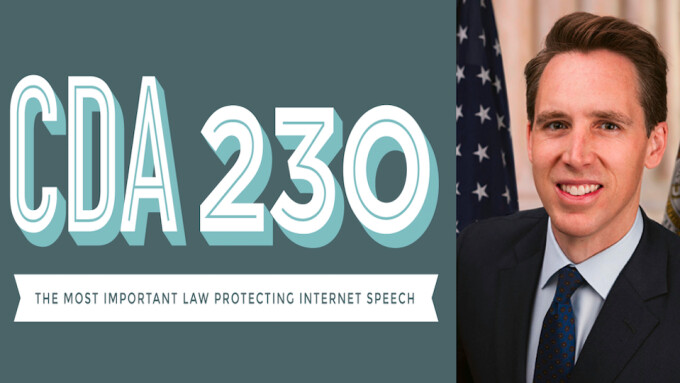WASHINGTON — Two separate projects, from the Trump administration’s Department of Justice (DOJ) and by Republican senators, were released yesterday proposing modifications to Section 230 of the federal communications act, known by Free Speech advocates as “the First Amendment of the internet.”
Section 230 has historically shielded online platforms from liability for content uploaded by third parties. That protection has come under criticism from both the Republican president and his presumptive Democratic challenger, Joe Biden, both of whom have explicitly asked for its repeal.
Only Congress has the power to modify and repeal the Communications Decency Act of 1996, of which Section 230 is one of the key parts.
The DOJ legislative proposal — an unusual intrusion by the executive branch into the law-making process constitutionally reserved for Congress — recommends narrowing down the application of Section 230 in order to “update the outdated immunity for online platforms.”
According to legal news site Law360, the DOJ proposal “outlines specific instances in which websites could lose their liability shield as moderators, such as when websites fail to remove clearly illegal content or posts flagged by a court as inappropriate. It also calls for platforms to only be allowed to enforce ‘plain and particular terms of service,’ meaning websites couldn't retroactively apply reasoning to unpopular or unclear moderation decisions.”
Also yesterday, a group of GOP senators led by Missouri’s Josh Hawley and including Florida’s Marco Rubio, presented a projected “Limiting Section 230 Immunity to Good Samaritans Act.”
The accompanying statement by Senator Hawley stated that “for too long, Big Tech companies like Twitter, Google and Facebook have used their power to silence political speech from conservatives without any recourse for users. Congress should act to ensure bad actors are not given a free pass to censor and silence their opponents."
While Hawley appears to be against “censorship” by online platforms shielded by Section 230, his project could gut a key protection that has shielded platforms from government intrusion and lawsuits seeking to limit free expression, including sexual expression.
There is evidence that Hawley’s views on freedom of sexual expression are religiously inspired. In 2017, as Missouri’s attorney general, Hawley blamed the sexual revolution of the 1960s and '70s for “human trafficking.”
“We have a human trafficking crisis in our state and in this city and in our country because people are willing to purchase women, young women, and treat them like commodities,” Hawley told a right-wing Kansas City evangelical group. “There is a market for it. Why is there? Because our culture has completely lost its way. The sexual revolution has led to exploitation of women on a scale that we would never have imagined, never have imagined.”
Regardless of the viability of the DOJ’s or the GOP senators’ projects, they are both being unveiled during a presidential campaign that has included Trump issuing an unprecedented executive order to much self-fanfare.
Last month’s executive order directly threatened Twitter and other online platforms with ramped-up, targeted federal scrutiny as retaliation for attempts to hold Trump’s communications to the platforms' terms and conditions standards.
The cumulative effect appears to have brought increased pressure on the supposedly independent Federal Communication Commission (FCC) to spell out its interpretation of Section 230 protections.
An Outdated Act
Part of the problem, said Battleship Stance’s Jason Tucker — whose copyright management and enforcement clients include many important players in the adult industry — is that the current communications act is already 24 years old.
“Times have changed so there are elements worth discussion,” Tucker told XBIZ. “But it’s important to remember that censorship is a dangerous road."
“One point of interest would be how to replace vague terminology. For example, as it relates to anti-piracy efforts, it would be nice to define what is considered 'reasonable.' Are three DMCA Notices with failure to remove enough to establish liability for third-party postings? Is failing to terminate a user after six ‘copyright strikes’ enough to establish liability?”
But with issues such as “revenge porn,” which the mainstream media often conflates with professional adult production, the situation becomes more complex.
"When you scale the size of operations," Tucker continued, "it’s easy to see that absolute answers are not easy. In the 24 years since the passing of the [CDA], and the thousands of cases relating to Section 230, courts haven’t defined what is 'reasonable.'"
Tucker also remarked on the election-year politicization of an issue that was at other times handled in less partisan terms.
“The Section 230 gathering took place in February at FBI headquarters,” Tucker explained. “The President lambasted Twitter months later. This administration has made clear a desire to have rule over speech that doesn’t fit their narrative. The First Amendment still exists, and this thankfully creates a hurdle. Is this a presidential pageant or we are ready to have serious discussions in Congress?”
“I believe that, if only in the short term, we will see large tech companies such as Google implementing additional systems to appease the powers in Washington D.C.,” Tucker concluded. “That awareness may be enough. If the administration pushes this too hard, however, we will see companies completely leave the U.S. and reap benefits without major consequences.”
Top Image: The Electronic Frontier Foundation graphic for Section 230 and Senator Josh Hawley (R-Missouri)







